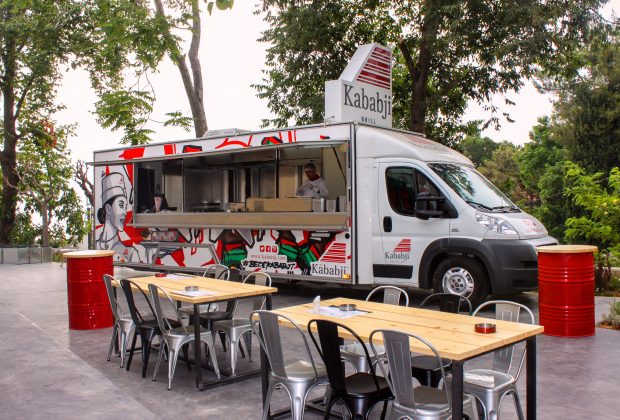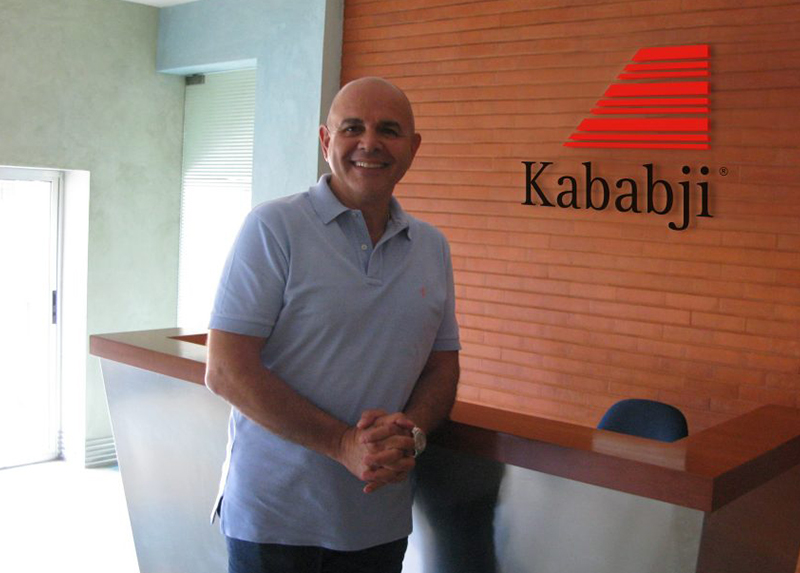Meals on wheels have steered its way to Lebanon. In 2012, Kababji food truck was firstly operated in Washington DC – USA with a vision to operate in Lebanon; they were the pioneers to lunch the food truck business in the Lebanese Market back in 2015. Consequently several restaurants followed their footsteps from that time onward. Some of the other operating food trucks, which can be considered direct competitors with Kababji Food Truck, are Roadster, Deek Duke, Malak Al Taouk, Burger King, and Classic Burger.
Kababji food truck accommodates different types of activities and occasions. It can be booked for a private party or special event, catering, concerts, or it can be operated in special seasonal resorts, as food trucks have been listed among the trendiest ideas for weddings this year.
Digging into business, BIM POS had many concerns to report on concerning the food truck trend in Lebanon as of operation, budget, laws, challenges, and other insights; discussing this subject with Toufic Khoueiri – Owner of Kababji has brought clear skies.
So what are the advantages of launching a food truck business in Lebanon; and any chances for this trend to grow?
Public Perception
So why has the idea of eating from a food truck changed? The simple reason is that public perception has changed. Trusted and well established restaurant brands in the market give comfort and positive perception to customers eating street food. For Kababji, the truck is a compressed outlet; it has all the elements to be a restaurant on wheels. And the open kitchen and live grill give the customers a truthful impression that this food is freshly prepared and cooked upon order.
The question here does a food truck have to be a brand born project, as it’s the case with Kababji, for it to gain credibility? Toufic Khoueiri’s estimation is that a food truck can also build a concept and a brand by itself allowing one to launch a restaurant later on. “Yes, it could be the other way round; food trucks are a great way to test a restaurant concept, develop your customer base before you build a new restaurant,” he says.
Cost
Typically, street food is more affordable than conventional dining options. “Without a rent to cover or buildings to support, food truck vendors can run a lean operation cheaper than their brick and mortar dining competitors.”
“Realistically any culinary entrepreneur with more than 50 thousand dollars, let’s say 75, can start operating a food truck business with the right specifications and that is a low start-up cost,” Khoueiri says.
More Options
A food truck offers time starved diners a fast bite with a shorter wait time of a sit down restaurant. Kababji food truck menu is already a healthy menu served fast. Although it is a limited menu due to storage and space restriction, it includes Salads, Grill Combo Meals, Sandwiches, and few of Lebanese appetizers.
“Yet, think of when groups of food trucks can park in one area and they provide hungry customers a custom tailored menu where they may mix and match their meal based on their tastes. Every feasible ethnic, cooking style and regional meals can be represented by food trucks.” Khoueiri adds.
Location and Entertainment
The brightly colored rigs are fun, the menus are fun, the staff taking your order is fun, and the folks standing in line waiting with you are also fun. Food trucks change the atmosphere of the areas they operate. Outside of bad weather, which Khoueiri sees as a challenge to customers and not to the truck itself, why wouldn’t anyone in any demographic enjoy their time visiting a food truck? If you’re in a bad location today, you can be in a new location tomorrow.
Added - Value
Some Restaurateurs complain that food trucks threaten their business. The evidence suggests otherwise. According to the Bureau of Labour Statistics, countries that have experienced higher growth in mobile-food services have also had quicker growth in their restaurant and catering businesses. Toufic Khoueiri believes in this as he discusses that Kababji Food Trucks provide employment opportunities, and in addition to the above it is a significant exposure to the brand and a direct marketing tool. Further, socially conscience foodies realize that street food providers offer jobs and a community in the cities where they run. “Street food vendors also increase sales in the retail areas where they operate; in case your retail small business is lagging, consider inviting a food truck to park near your company,” a piece of advice from one of the foodies.
Now what are the challenges which make it a slow-growing business in Lebanon?
The most challenging part is the regulatory hurdles in the country which have been questioned in the past couple of years: Despite strong industry-wide performance in the food and beverage, some operators have been held back by country’s regulation and low profit margins. There are no laws governing food trucks in Lebanon according to Kababji; “consequently we could not be present in public locations, on side of highways, or during public events. And the only authorized option is being present in private spots which do not generate the expected revenues compared to that from Public areas.”As a result, growth has slowed over the past few years, and unfortunately will continue to be slow if no permits and licenses are issued.
Khoueiri believes that parking laws and other city ordinances are still surfacing in Lebanon to catch up with the industry’s transformation. “We as industry associations will need to work closely with city governments and other restaurateurs to resolve these issues if food trucks are to play a bigger role in the country’s food-services sector,” he adds.
In simple words and according to Kababji, food truck start ups have to consider the following particulars as they launch:
- Challenging mobile vending laws; as they do not exist in Lebanon
- Need for parking permits
- Health codes; feasible to obtain
- Rules about distances from other businesses; not the case here
- Needing a commissary for food preparation; a central production source for instance as it is the case with Kababji
- Insurance costs; as insurances are obtainable
The Bottom Line
No matter what the reason, the data shows that the food truck industry is here to stay. Not only is it a great small business to start, but food truck fans in Lebanon can’t get enough of them. With that said, communities in the country need to open their doors with less restrictive regulations so that food truck industry growth can continue.
If the government provides food truck operators with public parking license, food truck business will surely be a fast-paced trend and a competitive trade in the market. In my case, it is always an added success to continue to operate food trucks as a mobile location even after I’ve established a fixed restaurant. The flexibility is great and it’s yours to seize
a final thought by Toufic Khoueiry. So, what are you waiting for?








